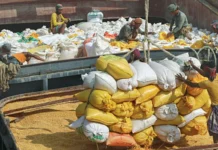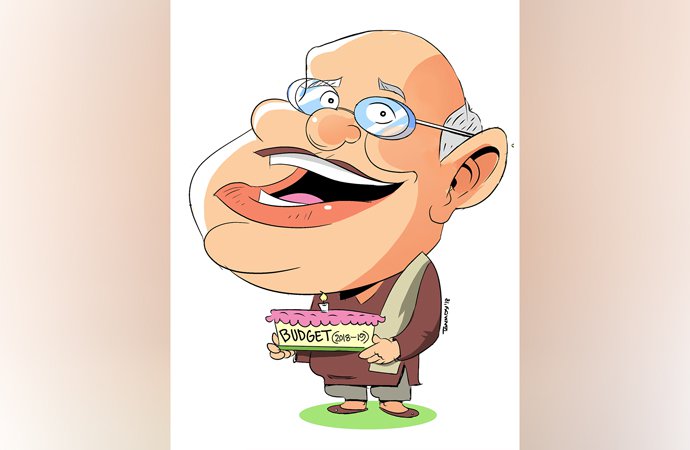The Indian government in its latest budget has proposed imposition of 15.36 per cent duty including 12.36 per cent countervailing duty (CVD) and 3.0 per cent additional cess on the import of readymade garments (RMG) from Bangladesh. The proposal has reportedly been made against the backdrop of growing pressure from the Indian textile lobby that has been complaining about an uneven competition in the case of 46 Bangladesh apparel items, now enjoying duty-free entry into India.
It is quite natural on the part of the domestic industries of any country to seek from their government the measures that would protect their interests best from any external competition. However, a government which has to deal with both economic and political interests of the country needs to make right decisions, taking into cognizance all the relevant issues. The CVD proposed in the Indian national budget, if adopted by the Lok Sabha, would largely nullify the duty benefit that India had offered Bangladesh in late 2011 to help the latter narrow down the ever-widening trade gap between the two neighbours.
Despite the existence of a varying tariff and non-tariff barriers by different states, the export of readymade garments (RMG) to India recorded nearly 55 per cent increase in 2011-12 due to the due-free entry of 46 items since late 2011. The rate of growth may sound quite hogh. But in real terms, it was not so. The revenue earning from RMG export to India in 2011-12 was $50 million as against that of $35.9 million dollar in the previous year. Compared with the revenue Bangladesh earns from apparel exports to the USA and the European Union (EU) countries, the revenue earned from exports to India is just a peanut. Similarly, the value of the apparel imports from Bangladesh does not deserve a mention even, if compared to India’s own domestic textile market valued at $36 billion or more.
Indian top leaders on a number of occasions had pledged trade concessions to Bangladesh not only as a least developed country but also to demonstrate India’s gesture of goodwill to one of its close neighbours. The decision to allow duty-free entry of 46 Bangladesh RMG items into the Indian market was heartily greeted by both the government and the business circles here as a welcome development. In the past Indian promise to reduce the trade gap had not been honoured duly. This had given rise to scepticism among the policymakers and the people as well about the intention of India to improve relations – trade or otherwise, with Bangladesh.
The Indian authorities should examine the proposed levying of CVD on Bangladesh apparel items in its right perspective. They should weigh the impact of the proposed duty on RMG items imported from Bangladesh and also the benefit the Bangladesh producers might derive from the same in the large market of India. The issue of political fallout from the decision should also not escape their notice. On its part, the Bangladesh government should seek a clarification from the Indian authorities on the proposed move.
Source: Financial Express









